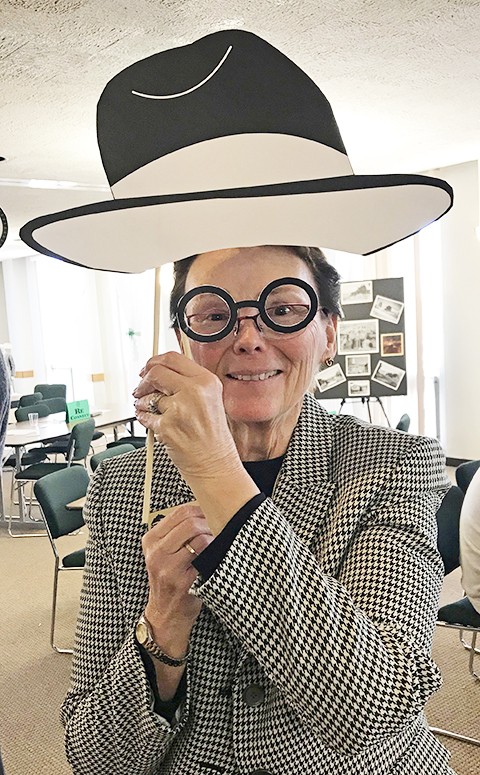ASU launches centennial planning

ALAMOSA – The Adams100 Commission, a group of San Luis Valley residents and faculty, staff and alumni of Adams State University, met for the first time Friday to begin planning activities related to the 100-year celebration of Adams State University in 2021.
“Our centennial celebration is an acknowledgment of the power of education and Adams State’s role in advancing learning,” Adams State President Cheryl D. Lovell told commission members when they launched their efforts at the Adams State Student Union Building.
“For me the significance of our centennial gives us an opportunity to shine a light on this extraordinary past, while also considering what lies ahead. Adams State is about changing lives, transforming people, and providing a path forward. We need to ensure Adams can continue doing this for another 100 years.”
The commission was established by the Adams State Board of Trustees to undertake major efforts on behalf of Adams State. On it are community members like Mary Motz and Charlotte Bobicki, Alamosa businesswomen Wendi Seger and Kindra Lambert, Alamosa Mayor Ty Coleman, Alamosa Parks and Recreation Director Andy Rice, Alamosa County Manager Gigi Dennis, and Herman and Patsy Martinez, who have been integral players at Adams State for decades. The commission comprises 100 individuals, all of whom have committed to helping Adams State in its strategies to build onto the success of the university.
Alamosa Mayor Coleman and Adams State Cross Country and Track & Field Director Damon Martin encouraged commission members to work as a team on behalf of Adams State.
Mayor Coleman spoke about his son and daughter, and how both earned their degrees from Adams State and are succeeding in their own careers because of their education at Adams State.
Coach Martin, in a taped message, recalled arriving in Alamosa with his wife, Konnie, in 1985 from Arkansas. “As we moved into the community, we really fell in love with the people of Alamosa. The community was engaging to us from the very beginning.
“I think that Adams State has provided me an opportunity to grow. It educated me to the excellence of the sport, and one of the things I’ve tried to do is not just be somebody who has taken from it or benefitted from it, but I’ve really tried to spend the last 30 years giving back to this university and working hard.
“It’s inspired me to a level that I think Alamosa and Adams State is the best place on the planet. I think we can do things here with young men and young women that maybe they can’t do at other places.”
Adams100 Commission members were given a deep dive look at Adams State, including new degree programs in food studies and outdoor education that Adams State will launch in Fall 2019. They also heard about “The Adams Experience,” which beginning in Fall 2019, will transform the undergraduate student experience through evidence-based High Impact Practices.
Through “The Adams Experience,” undergraduates will experience more writing intensive courses, participate in a more undergraduate research and work on more collaborative and interdisciplinary projects. A larger number of Adams State students will find themselves in internships and experience a more place-based education, using the San Luis Valley and neighboring regions for educational and research purposes.
Adams State was established by the Colorado Legislature in 1921 and is named for the 25th governor of Colorado, Billy Adams. Adams State continues to have a major economic impact on Alamosa and the San Luis Valley.
A recent economic impact study showed that Adams State creates a return of $83.5 million to the local economy each year, including $36.8 million in student living and personal costs, $21.4 million in employee payroll and direct spending, and $6.8 million spent by visitors who attend Adams State events and come to visit their students attending Adams State.
“We have a story worth telling and worth celebrating,” President Lovell told commission members. “To say we have come a long way in 100 years is an understatement.”



